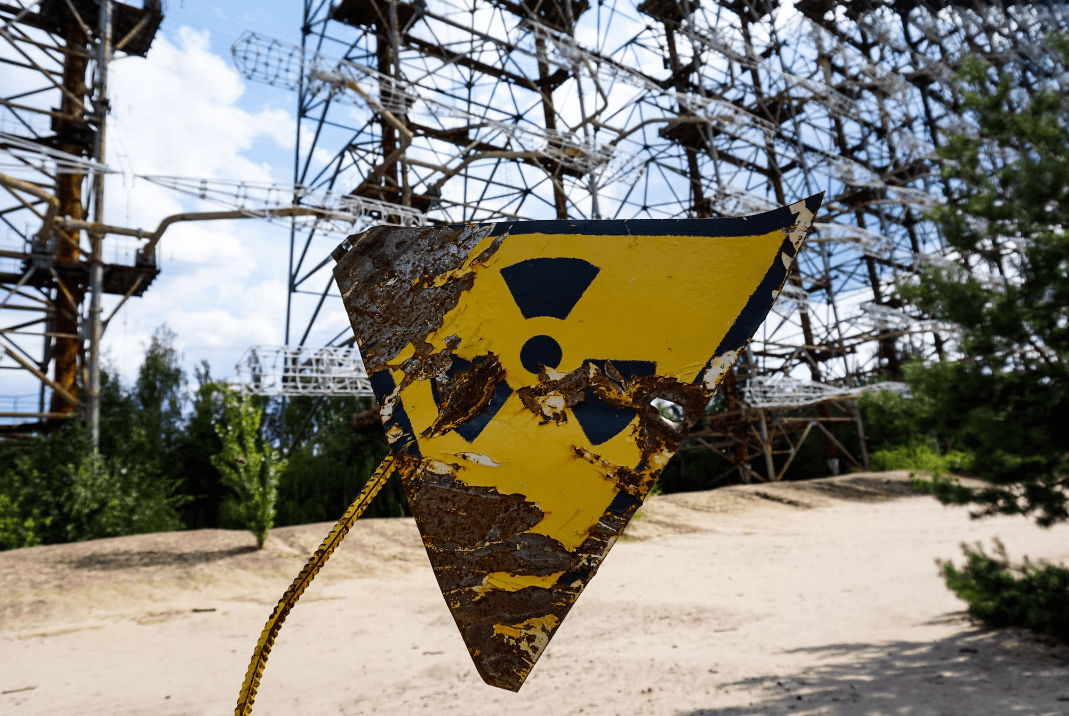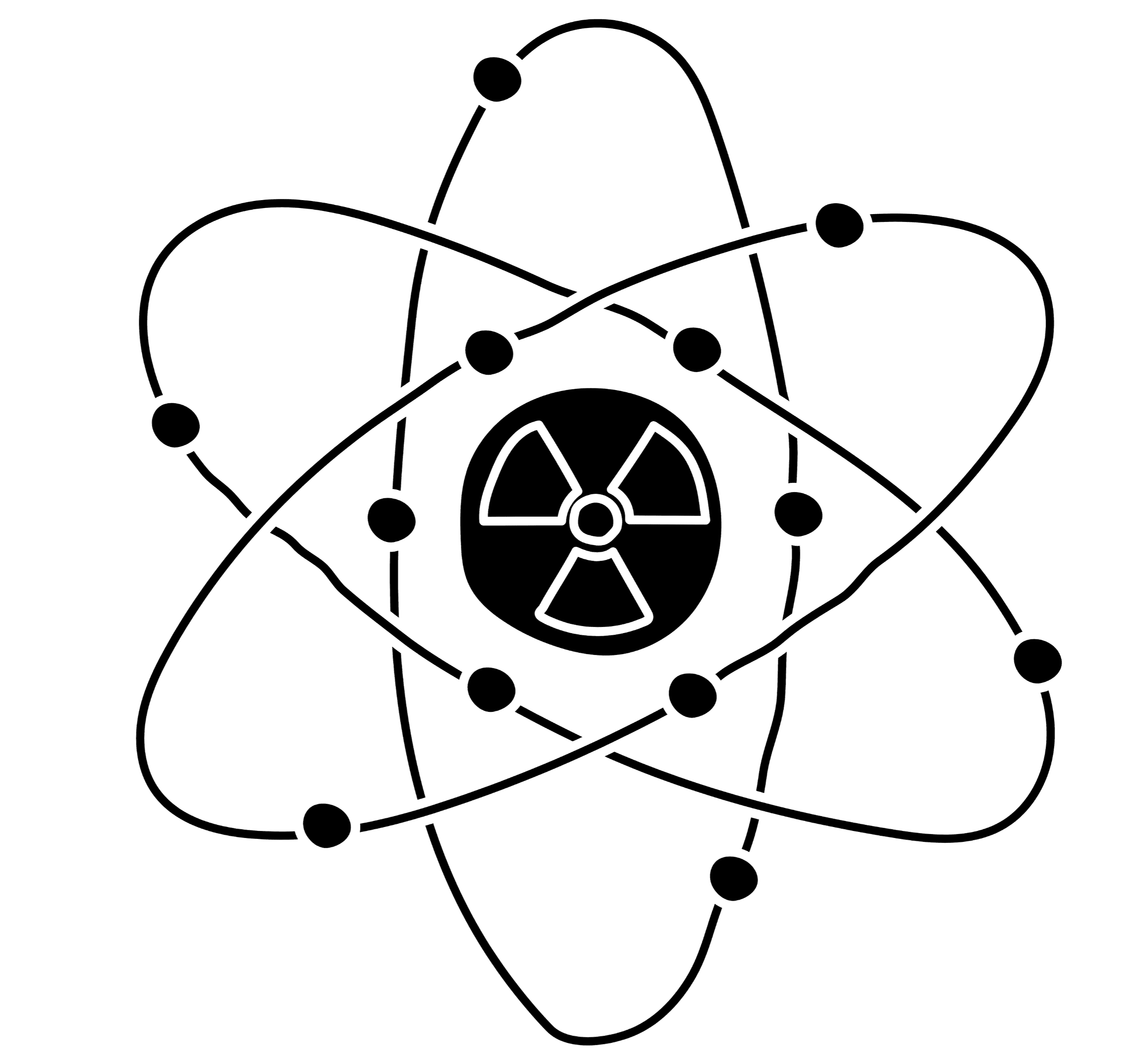
IMMERSIVE LEARNING JOURNEYS

IMMERSIVE LEARNING JOURNEYS
Embark on Epic Adventures:
Discover the Catalyst Curriculum
Our curriculum is designed as a series of exciting missions, each one an immersive adventure. Explore trailers, mission details, and see how our lessons turn learning into a thrilling journey.
Our curriculum is designed as a series of exciting missions, each one an immersive adventure. Explore trailers, mission details, and see how our lessons turn learning into a thrilling journey.
Our curriculum is designed as a series of exciting missions, each one an immersive adventure. Explore trailers, mission details, and see how our lessons turn learning into a thrilling journey.
Choose Your Mission


The Mission
The Manhattan Project
Mission Objective
Your mission is to lead the secret development of the atomic bomb during World War II. You’ll apply your knowledge of physics and math to create the most powerful weapon in history, knowing that the future of warfare depends on your success.


Difficulty Level: Hard
Grade Level: 8th - 10th Grade
Subject: Algebra II
In The Manhattan Project, you’ll step into one of the most secretive and impactful scientific efforts of the 20th century.
As part of the team building the atomic bomb, you’ll apply advanced physics and mathematics to design and test the deadliest weapon ever created.
You’ll grapple with the ethical implications of your work while managing the technical challenges of nuclear physics. The mission will deepen your understanding of history, the impact of scientific discoveries, and the delicate balance between innovation and responsibility.

Explore the
Full Journey of Your Mission
Dive into the mission details and discover each step of the process. From learning core concepts to applying hands-on skills, explore how you will complete this exciting challenge.


Algebra II
In this mission, you’ll use advanced algebra to solve problems related to nuclear equations, reaction rates, and the energy released during fission. You’ll apply algebraic formulas to calculate the critical mass and understand the mathematical basis of nuclear chain reactions.
Chemistry I
In this mission, you’ll understand the chemical processes involved in refining uranium and plutonium, essential materials for the atomic bomb. You’ll learn how chemistry played a crucial role in the production of fissile materials, providing the foundation for nuclear technology.
English IV
Physics I
Learning Outcomes
Advanced Physics
Gain an understanding of the advanced physics and mathematical concepts behind nuclear reactions. Apply these concepts to solve complex problems in the design and testing of atomic weaponry.
Historical Impact
Explore the historical significance of the Manhattan Project and its impact on global politics. Grapple with the ethical implications of scientific discoveries, including the balance between innovation and the destructive potential of technology.
Collaboration and Teamwork
Develop skills in effective teamwork and collaboration in a high-pressure environment. Learn how large-scale, secretive projects require coordination, communication, and a shared sense of purpose among diverse teams.
Innovation and Responsibility
Understand the delicate balance between pushing the boundaries of scientific innovation and the moral responsibilities that come with it. Learn to evaluate the societal impact of scientific advancements and the ethical dilemmas involved.
Advanced Physics
Gain an understanding of the advanced physics and mathematical concepts behind nuclear reactions. Apply these concepts to solve complex problems in the design and testing of atomic weaponry.
Historical Impact
Explore the historical significance of the Manhattan Project and its impact on global politics. Grapple with the ethical implications of scientific discoveries, including the balance between innovation and the destructive potential of technology.
Collaboration and Teamwork
Develop skills in effective teamwork and collaboration in a high-pressure environment. Learn how large-scale, secretive projects require coordination, communication, and a shared sense of purpose among diverse teams.
Innovation and Responsibility
Understand the delicate balance between pushing the boundaries of scientific innovation and the moral responsibilities that come with it. Learn to evaluate the societal impact of scientific advancements and the ethical dilemmas involved.
Advanced Physics
Gain an understanding of the advanced physics and mathematical concepts behind nuclear reactions. Apply these concepts to solve complex problems in the design and testing of atomic weaponry.
Historical Impact
Explore the historical significance of the Manhattan Project and its impact on global politics. Grapple with the ethical implications of scientific discoveries, including the balance between innovation and the destructive potential of technology.
Collaboration and Teamwork
Develop skills in effective teamwork and collaboration in a high-pressure environment. Learn how large-scale, secretive projects require coordination, communication, and a shared sense of purpose among diverse teams.
Innovation and Responsibility
Understand the delicate balance between pushing the boundaries of scientific innovation and the moral responsibilities that come with it. Learn to evaluate the societal impact of scientific advancements and the ethical dilemmas involved.
Advanced Physics
Gain an understanding of the advanced physics and mathematical concepts behind nuclear reactions. Apply these concepts to solve complex problems in the design and testing of atomic weaponry.
Historical Impact
Explore the historical significance of the Manhattan Project and its impact on global politics. Grapple with the ethical implications of scientific discoveries, including the balance between innovation and the destructive potential of technology.
Collaboration and Teamwork
Develop skills in effective teamwork and collaboration in a high-pressure environment. Learn how large-scale, secretive projects require coordination, communication, and a shared sense of purpose among diverse teams.
Innovation and Responsibility
Understand the delicate balance between pushing the boundaries of scientific innovation and the moral responsibilities that come with it. Learn to evaluate the societal impact of scientific advancements and the ethical dilemmas involved.
Advanced Physics
Gain an understanding of the advanced physics and mathematical concepts behind nuclear reactions. Apply these concepts to solve complex problems in the design and testing of atomic weaponry.
Historical Impact
Explore the historical significance of the Manhattan Project and its impact on global politics. Grapple with the ethical implications of scientific discoveries, including the balance between innovation and the destructive potential of technology.
Collaboration
and Teamwork
Develop skills in effective teamwork and collaboration in a high-pressure environment. Learn how large-scale, secretive projects require coordination, communication, and a shared sense of purpose among diverse teams.
Innovation and Responsibility
Understand the delicate balance between pushing the boundaries of scientific innovation and the moral responsibilities that come with it. Learn to evaluate the societal impact of scientific advancements and the ethical dilemmas involved.

Pre-Requisites

Basic Research Skills
Before starting this mission, students should be familiar with basic research techniques, including how to gather, evaluate, and cite reliable sources.
Fundamental Math Concepts
Students should have a strong understanding of basic algebra and geometry, as these concepts will be applied throughout the mission in various problem-solving tasks.
Introductory Science Knowledge
Students must have a foundational understanding of scientific concepts, such as the scientific method, basic chemistry, and physics, as they will build on these in the mission.
Team Collaboration Experience
Prior experience working in teams is required. Students should understand how to communicate effectively, divide tasks, and collaborate to achieve a common goal.
Choose Your Mission
Choose Your Mission

Hear Directly From Parents
Parent Reviews:
Real Stories, Real Impact
Sarah Mitchell
Mother of Lucas
"Catalyst Academy has transformed the way my son approaches learning. The hands-on missions have sparked his creativity and deepened his understanding of complex topics."
Maria Gonzalez
Mother of Sofia
"Sofia’s curiosity has flourished since starting at Catalyst Academy. The innovative teaching methods have made learning fun, and she’s more engaged than ever."
John Davis
Father of Emma
"Since joining Catalyst, Emma has grown in confidence and problem-solving skills. She’s excited to participate in every mission and always looks forward to new challenges."
Sarah Mitchell
Mother of Lucas
"Catalyst Academy has transformed the way my son approaches learning. The hands-on missions have sparked his creativity and deepened his understanding of complex topics."
Maria Gonzalez
Mother of Sofia
"Sofia’s curiosity has flourished since starting at Catalyst Academy. The innovative teaching methods have made learning fun, and she’s more engaged than ever."
John Davis
Father of Emma
"Since joining Catalyst, Emma has grown in confidence and problem-solving skills. She’s excited to participate in every mission and always looks forward to new challenges."
Sarah Mitchell
Mother of Lucas
"Catalyst Academy has transformed the way my son approaches learning. The hands-on missions have sparked his creativity and deepened his understanding of complex topics."
Maria Gonzalez
Mother of Sofia
"Sofia’s curiosity has flourished since starting at Catalyst Academy. The innovative teaching methods have made learning fun, and she’s more engaged than ever."
John Davis
Father of Emma
"Since joining Catalyst, Emma has grown in confidence and problem-solving skills. She’s excited to participate in every mission and always looks forward to new challenges."
Sarah Mitchell
Mother of Lucas
"Catalyst Academy has transformed the way my son approaches learning. The hands-on missions have sparked his creativity and deepened his understanding of complex topics."
Maria Gonzalez
Mother of Sofia
"Sofia’s curiosity has flourished since starting at Catalyst Academy. The innovative teaching methods have made learning fun, and she’s more engaged than ever."
John Davis
Father of Emma
"Since joining Catalyst, Emma has grown in confidence and problem-solving skills. She’s excited to participate in every mission and always looks forward to new challenges."


The Mission
The Manhattan Project
Mission Objective
Your mission is to lead the secret development of the atomic bomb during World War II. You’ll apply your knowledge of physics and math to create the most powerful weapon in history, knowing that the future of warfare depends on your success.


Difficulty Level: Hard
Grade Level: 8th - 10th Grade
Subject: Algebra II
In The Manhattan Project, you’ll step into one of the most secretive and impactful scientific efforts of the 20th century.
As part of the team building the atomic bomb, you’ll apply advanced physics and mathematics to design and test the deadliest weapon ever created.
You’ll grapple with the ethical implications of your work while managing the technical challenges of nuclear physics. The mission will deepen your understanding of history, the impact of scientific discoveries, and the delicate balance between innovation and responsibility.

Explore the
Full Journey of Your Mission
Dive into the mission details and discover each step of the process. From learning core concepts to applying hands-on skills, explore how you will complete this exciting challenge.


Algebra II
In this mission, you’ll use advanced algebra to solve problems related to nuclear equations, reaction rates, and the energy released during fission. You’ll apply algebraic formulas to calculate the critical mass and understand the mathematical basis of nuclear chain reactions.
Chemistry I
In this mission, you’ll understand the chemical processes involved in refining uranium and plutonium, essential materials for the atomic bomb. You’ll learn how chemistry played a crucial role in the production of fissile materials, providing the foundation for nuclear technology.
English IV
Physics I
Learning Outcomes
Advanced Physics
Gain an understanding of the advanced physics and mathematical concepts behind nuclear reactions. Apply these concepts to solve complex problems in the design and testing of atomic weaponry.
Historical Impact
Explore the historical significance of the Manhattan Project and its impact on global politics. Grapple with the ethical implications of scientific discoveries, including the balance between innovation and the destructive potential of technology.
Collaboration and Teamwork
Develop skills in effective teamwork and collaboration in a high-pressure environment. Learn how large-scale, secretive projects require coordination, communication, and a shared sense of purpose among diverse teams.
Innovation and Responsibility
Understand the delicate balance between pushing the boundaries of scientific innovation and the moral responsibilities that come with it. Learn to evaluate the societal impact of scientific advancements and the ethical dilemmas involved.
Advanced Physics
Gain an understanding of the advanced physics and mathematical concepts behind nuclear reactions. Apply these concepts to solve complex problems in the design and testing of atomic weaponry.
Historical Impact
Explore the historical significance of the Manhattan Project and its impact on global politics. Grapple with the ethical implications of scientific discoveries, including the balance between innovation and the destructive potential of technology.
Collaboration and Teamwork
Develop skills in effective teamwork and collaboration in a high-pressure environment. Learn how large-scale, secretive projects require coordination, communication, and a shared sense of purpose among diverse teams.
Innovation and Responsibility
Understand the delicate balance between pushing the boundaries of scientific innovation and the moral responsibilities that come with it. Learn to evaluate the societal impact of scientific advancements and the ethical dilemmas involved.
Advanced Physics
Gain an understanding of the advanced physics and mathematical concepts behind nuclear reactions. Apply these concepts to solve complex problems in the design and testing of atomic weaponry.
Historical Impact
Explore the historical significance of the Manhattan Project and its impact on global politics. Grapple with the ethical implications of scientific discoveries, including the balance between innovation and the destructive potential of technology.
Collaboration and Teamwork
Develop skills in effective teamwork and collaboration in a high-pressure environment. Learn how large-scale, secretive projects require coordination, communication, and a shared sense of purpose among diverse teams.
Innovation and Responsibility
Understand the delicate balance between pushing the boundaries of scientific innovation and the moral responsibilities that come with it. Learn to evaluate the societal impact of scientific advancements and the ethical dilemmas involved.
Advanced Physics
Gain an understanding of the advanced physics and mathematical concepts behind nuclear reactions. Apply these concepts to solve complex problems in the design and testing of atomic weaponry.
Historical Impact
Explore the historical significance of the Manhattan Project and its impact on global politics. Grapple with the ethical implications of scientific discoveries, including the balance between innovation and the destructive potential of technology.
Collaboration and Teamwork
Develop skills in effective teamwork and collaboration in a high-pressure environment. Learn how large-scale, secretive projects require coordination, communication, and a shared sense of purpose among diverse teams.
Innovation and Responsibility
Understand the delicate balance between pushing the boundaries of scientific innovation and the moral responsibilities that come with it. Learn to evaluate the societal impact of scientific advancements and the ethical dilemmas involved.
Advanced Physics
Gain an understanding of the advanced physics and mathematical concepts behind nuclear reactions. Apply these concepts to solve complex problems in the design and testing of atomic weaponry.
Historical Impact
In this mission, we will challenge students to solve complex problems by analyzing information, evaluating different perspectives, and making reasoned decisions. They'll learn how to think critically in various contexts.
Collaboration and Teamwork
Develop skills in effective teamwork and collaboration in a high-pressure environment. Learn how large-scale, secretive projects require coordination, communication, and a shared sense of purpose among diverse teams.
Innovation and Responsibility
Understand the delicate balance between pushing the boundaries of scientific innovation and the moral responsibilities that come with it. Learn to evaluate the societal impact of scientific advancements and the ethical dilemmas involved.

Pre-Requisites

Basic Research Skills
Before starting this mission, students should be familiar with basic research techniques, including how to gather, evaluate, and cite reliable sources.
Fundamental Math Concepts
Students should have a strong understanding of basic algebra and geometry, as these concepts will be applied throughout the mission in various problem-solving tasks.
Introductory Science Knowledge
Students must have a foundational understanding of scientific concepts, such as the scientific method, basic chemistry, and physics, as they will build on these in the mission.
Team Collaboration Experience
Prior experience working in teams is required. Students should understand how to communicate effectively, divide tasks, and collaborate to achieve a common goal.
Choose Your Mission
Choose Your Mission

Hear Directly From Parents
Parent Reviews:
Real Stories, Real Impact
Sarah Mitchell
Mother of Lucas
"Catalyst Academy has transformed the way my son approaches learning. The hands-on missions have sparked his creativity and deepened his understanding of complex topics."
Maria Gonzalez
Mother of Sofia
"Sofia’s curiosity has flourished since starting at Catalyst Academy. The innovative teaching methods have made learning fun, and she’s more engaged than ever."
John Davis
Father of Emma
"Since joining Catalyst, Emma has grown in confidence and problem-solving skills. She’s excited to participate in every mission and always looks forward to new challenges."
Sarah Mitchell
Mother of Lucas
"Catalyst Academy has transformed the way my son approaches learning. The hands-on missions have sparked his creativity and deepened his understanding of complex topics."
Maria Gonzalez
Mother of Sofia
"Sofia’s curiosity has flourished since starting at Catalyst Academy. The innovative teaching methods have made learning fun, and she’s more engaged than ever."
John Davis
Father of Emma
"Since joining Catalyst, Emma has grown in confidence and problem-solving skills. She’s excited to participate in every mission and always looks forward to new challenges."
Sarah Mitchell
Mother of Lucas
"Catalyst Academy has transformed the way my son approaches learning. The hands-on missions have sparked his creativity and deepened his understanding of complex topics."
Maria Gonzalez
Mother of Sofia
"Sofia’s curiosity has flourished since starting at Catalyst Academy. The innovative teaching methods have made learning fun, and she’s more engaged than ever."
John Davis
Father of Emma
"Since joining Catalyst, Emma has grown in confidence and problem-solving skills. She’s excited to participate in every mission and always looks forward to new challenges."
Sarah Mitchell
Mother of Lucas
"Catalyst Academy has transformed the way my son approaches learning. The hands-on missions have sparked his creativity and deepened his understanding of complex topics."
Maria Gonzalez
Mother of Sofia
"Sofia’s curiosity has flourished since starting at Catalyst Academy. The innovative teaching methods have made learning fun, and she’s more engaged than ever."
John Davis
Father of Emma
"Since joining Catalyst, Emma has grown in confidence and problem-solving skills. She’s excited to participate in every mission and always looks forward to new challenges."


The Mission
The Manhattan Project
Mission Objective
Your mission is to lead the secret development of the atomic bomb during World War II. You’ll apply your knowledge of physics and math to create the most powerful weapon in history, knowing that the future of warfare depends on your success.


Difficulty Level: Hard
Grade Level: 8th - 10th Grade
Subject: Algebra II
In The Manhattan Project, you’ll step into one of the most secretive and impactful scientific efforts of the 20th century.
As part of the team building the atomic bomb, you’ll apply advanced physics and mathematics to design and test the deadliest weapon ever created.
You’ll grapple with the ethical implications of your work while managing the technical challenges of nuclear physics. The mission will deepen your understanding of history, the impact of scientific discoveries, and the delicate balance between innovation and responsibility.

Explore the
Full Journey of Your Mission
Dive into the mission details and discover each step of the process. From learning core concepts to applying hands-on skills, explore how you will complete this exciting challenge.


Algebra II
In this mission, you’ll use advanced algebra to solve problems related to nuclear equations, reaction rates, and the energy released during fission. You’ll apply algebraic formulas to calculate the critical mass and understand the mathematical basis of nuclear chain reactions.
Chemistry I
In this mission, you’ll understand the chemical processes involved in refining uranium and plutonium, essential materials for the atomic bomb. You’ll learn how chemistry played a crucial role in the production of fissile materials, providing the foundation for nuclear technology.
English IV
Physics I
Learning Outcomes
Advanced Physics
Gain an understanding of the advanced physics and mathematical concepts behind nuclear reactions. Apply these concepts to solve complex problems in the design and testing of atomic weaponry.
Historical Impact
Explore the historical significance of the Manhattan Project and its impact on global politics. Grapple with the ethical implications of scientific discoveries, including the balance between innovation and the destructive potential of technology.
Collaboration and Teamwork
Develop skills in effective teamwork and collaboration in a high-pressure environment. Learn how large-scale, secretive projects require coordination, communication, and a shared sense of purpose among diverse teams.
Innovation and Responsibility
Understand the delicate balance between pushing the boundaries of scientific innovation and the moral responsibilities that come with it. Learn to evaluate the societal impact of scientific advancements and the ethical dilemmas involved.
Advanced Physics
Gain an understanding of the advanced physics and mathematical concepts behind nuclear reactions. Apply these concepts to solve complex problems in the design and testing of atomic weaponry.
Historical Impact
Explore the historical significance of the Manhattan Project and its impact on global politics. Grapple with the ethical implications of scientific discoveries, including the balance between innovation and the destructive potential of technology.
Collaboration and Teamwork
Develop skills in effective teamwork and collaboration in a high-pressure environment. Learn how large-scale, secretive projects require coordination, communication, and a shared sense of purpose among diverse teams.
Innovation and Responsibility
Understand the delicate balance between pushing the boundaries of scientific innovation and the moral responsibilities that come with it. Learn to evaluate the societal impact of scientific advancements and the ethical dilemmas involved.
Advanced Physics
Gain an understanding of the advanced physics and mathematical concepts behind nuclear reactions. Apply these concepts to solve complex problems in the design and testing of atomic weaponry.
Historical Impact
Explore the historical significance of the Manhattan Project and its impact on global politics. Grapple with the ethical implications of scientific discoveries, including the balance between innovation and the destructive potential of technology.
Collaboration and Teamwork
Develop skills in effective teamwork and collaboration in a high-pressure environment. Learn how large-scale, secretive projects require coordination, communication, and a shared sense of purpose among diverse teams.
Innovation and Responsibility
Understand the delicate balance between pushing the boundaries of scientific innovation and the moral responsibilities that come with it. Learn to evaluate the societal impact of scientific advancements and the ethical dilemmas involved.
Advanced Physics
Gain an understanding of the advanced physics and mathematical concepts behind nuclear reactions. Apply these concepts to solve complex problems in the design and testing of atomic weaponry.
Historical Impact
Explore the historical significance of the Manhattan Project and its impact on global politics. Grapple with the ethical implications of scientific discoveries, including the balance between innovation and the destructive potential of technology.
Collaboration and Teamwork
Develop skills in effective teamwork and collaboration in a high-pressure environment. Learn how large-scale, secretive projects require coordination, communication, and a shared sense of purpose among diverse teams.
Innovation and Responsibility
Understand the delicate balance between pushing the boundaries of scientific innovation and the moral responsibilities that come with it. Learn to evaluate the societal impact of scientific advancements and the ethical dilemmas involved.
Advanced Physics
Gain an understanding of the advanced physics and mathematical concepts behind nuclear reactions. Apply these concepts to solve complex problems in the design and testing of atomic weaponry.
Historical Impact
Explore the historical significance of the Manhattan Project and its impact on global politics. Grapple with the ethical implications of scientific discoveries, including the balance between innovation and the destructive potential of technology.
Collaboration
and Teamwork
Develop skills in effective teamwork and collaboration in a high-pressure environment. Learn how large-scale, secretive projects require coordination, communication, and a shared sense of purpose among diverse teams.
Innovation and Responsibility
Understand the delicate balance between pushing the boundaries of scientific innovation and the moral responsibilities that come with it. Learn to evaluate the societal impact of scientific advancements and the ethical dilemmas involved.

Pre-Requisites

Basic Research Skills
Before starting this mission, students should be familiar with basic research techniques, including how to gather, evaluate, and cite reliable sources.
Fundamental Math Concepts
Students should have a strong understanding of basic algebra and geometry, as these concepts will be applied throughout the mission in various problem-solving tasks.
Introductory Science Knowledge
Students must have a foundational understanding of scientific concepts, such as the scientific method, basic chemistry, and physics, as they will build on these in the mission.
Team Collaboration Experience
Prior experience working in teams is required. Students should understand how to communicate effectively, divide tasks, and collaborate to achieve a common goal.
Choose Your Mission
Choose Your Mission

Hear Directly From Parents
Parent Reviews:
Real Stories, Real Impact
Sarah Mitchell
Mother of Lucas
"Catalyst Academy has transformed the way my son approaches learning. The hands-on missions have sparked his creativity and deepened his understanding of complex topics."
Maria Gonzalez
Mother of Sofia
"Sofia’s curiosity has flourished since starting at Catalyst Academy. The innovative teaching methods have made learning fun, and she’s more engaged than ever."
John Davis
Father of Emma
"Since joining Catalyst, Emma has grown in confidence and problem-solving skills. She’s excited to participate in every mission and always looks forward to new challenges."
Sarah Mitchell
Mother of Lucas
"Catalyst Academy has transformed the way my son approaches learning. The hands-on missions have sparked his creativity and deepened his understanding of complex topics."
Maria Gonzalez
Mother of Sofia
"Sofia’s curiosity has flourished since starting at Catalyst Academy. The innovative teaching methods have made learning fun, and she’s more engaged than ever."
John Davis
Father of Emma
"Since joining Catalyst, Emma has grown in confidence and problem-solving skills. She’s excited to participate in every mission and always looks forward to new challenges."
Sarah Mitchell
Mother of Lucas
"Catalyst Academy has transformed the way my son approaches learning. The hands-on missions have sparked his creativity and deepened his understanding of complex topics."
Maria Gonzalez
Mother of Sofia
"Sofia’s curiosity has flourished since starting at Catalyst Academy. The innovative teaching methods have made learning fun, and she’s more engaged than ever."
John Davis
Father of Emma
"Since joining Catalyst, Emma has grown in confidence and problem-solving skills. She’s excited to participate in every mission and always looks forward to new challenges."
Sarah Mitchell
Mother of Lucas
"Catalyst Academy has transformed the way my son approaches learning. The hands-on missions have sparked his creativity and deepened his understanding of complex topics."
Maria Gonzalez
Mother of Sofia
"Sofia’s curiosity has flourished since starting at Catalyst Academy. The innovative teaching methods have made learning fun, and she’s more engaged than ever."
John Davis
Father of Emma
"Since joining Catalyst, Emma has grown in confidence and problem-solving skills. She’s excited to participate in every mission and always looks forward to new challenges."


The Mission
The Manhattan Project
Mission Objective
Your mission is to lead the secret development of the atomic bomb during World War II. You’ll apply your knowledge of physics and math to create the most powerful weapon in history, knowing that the future of warfare depends on your success.


Difficulty Level: Hard
Grade Level: 8th - 10th Grade
Subject: Algebra II
In The Manhattan Project, you’ll step into one of the most secretive and impactful scientific efforts of the 20th century.
As part of the team building the atomic bomb, you’ll apply advanced physics and mathematics to design and test the deadliest weapon ever created.
You’ll grapple with the ethical implications of your work while managing the technical challenges of nuclear physics. The mission will deepen your understanding of history, the impact of scientific discoveries, and the delicate balance between innovation and responsibility.

Explore the
Full Journey of Your Mission
Dive into the mission details and discover each step of the process. From learning core concepts to applying hands-on skills, explore how you will complete this exciting challenge.


Algebra II
In this mission, you’ll use advanced algebra to solve problems related to nuclear equations, reaction rates, and the energy released during fission. You’ll apply algebraic formulas to calculate the critical mass and understand the mathematical basis of nuclear chain reactions.
Chemistry I
In this mission, you’ll understand the chemical processes involved in refining uranium and plutonium, essential materials for the atomic bomb. You’ll learn how chemistry played a crucial role in the production of fissile materials, providing the foundation for nuclear technology.
English IV
Physics I
Learning Outcomes
Advanced Physics
Gain an understanding of the advanced physics and mathematical concepts behind nuclear reactions. Apply these concepts to solve complex problems in the design and testing of atomic weaponry.
Historical Impact
Explore the historical significance of the Manhattan Project and its impact on global politics. Grapple with the ethical implications of scientific discoveries, including the balance between innovation and the destructive potential of technology.
Collaboration and Teamwork
Develop skills in effective teamwork and collaboration in a high-pressure environment. Learn how large-scale, secretive projects require coordination, communication, and a shared sense of purpose among diverse teams.
Innovation and Responsibility
Understand the delicate balance between pushing the boundaries of scientific innovation and the moral responsibilities that come with it. Learn to evaluate the societal impact of scientific advancements and the ethical dilemmas involved.
Advanced Physics
Gain an understanding of the advanced physics and mathematical concepts behind nuclear reactions. Apply these concepts to solve complex problems in the design and testing of atomic weaponry.
Historical Impact
Explore the historical significance of the Manhattan Project and its impact on global politics. Grapple with the ethical implications of scientific discoveries, including the balance between innovation and the destructive potential of technology.
Collaboration and Teamwork
Develop skills in effective teamwork and collaboration in a high-pressure environment. Learn how large-scale, secretive projects require coordination, communication, and a shared sense of purpose among diverse teams.
Innovation and Responsibility
Understand the delicate balance between pushing the boundaries of scientific innovation and the moral responsibilities that come with it. Learn to evaluate the societal impact of scientific advancements and the ethical dilemmas involved.
Advanced Physics
Gain an understanding of the advanced physics and mathematical concepts behind nuclear reactions. Apply these concepts to solve complex problems in the design and testing of atomic weaponry.
Historical Impact
Explore the historical significance of the Manhattan Project and its impact on global politics. Grapple with the ethical implications of scientific discoveries, including the balance between innovation and the destructive potential of technology.
Collaboration and Teamwork
Develop skills in effective teamwork and collaboration in a high-pressure environment. Learn how large-scale, secretive projects require coordination, communication, and a shared sense of purpose among diverse teams.
Innovation and Responsibility
Understand the delicate balance between pushing the boundaries of scientific innovation and the moral responsibilities that come with it. Learn to evaluate the societal impact of scientific advancements and the ethical dilemmas involved.
Advanced Physics
Gain an understanding of the advanced physics and mathematical concepts behind nuclear reactions. Apply these concepts to solve complex problems in the design and testing of atomic weaponry.
Historical Impact
Explore the historical significance of the Manhattan Project and its impact on global politics. Grapple with the ethical implications of scientific discoveries, including the balance between innovation and the destructive potential of technology.
Collaboration and Teamwork
Develop skills in effective teamwork and collaboration in a high-pressure environment. Learn how large-scale, secretive projects require coordination, communication, and a shared sense of purpose among diverse teams.
Innovation and Responsibility
Understand the delicate balance between pushing the boundaries of scientific innovation and the moral responsibilities that come with it. Learn to evaluate the societal impact of scientific advancements and the ethical dilemmas involved.
Advanced Physics
Gain an understanding of the advanced physics and mathematical concepts behind nuclear reactions. Apply these concepts to solve complex problems in the design and testing of atomic weaponry.
Historical Impact
Explore the historical significance of the Manhattan Project and its impact on global politics. Grapple with the ethical implications of scientific discoveries, including the balance between innovation and the destructive potential of technology.
Collaboration and Teamwork
Develop skills in effective teamwork and collaboration in a high-pressure environment. Learn how large-scale, secretive projects require coordination, communication, and a shared sense of purpose among diverse teams.
Innovation and Responsibility
Understand the delicate balance between pushing the boundaries of scientific innovation and the moral responsibilities that come with it. Learn to evaluate the societal impact of scientific advancements and the ethical dilemmas involved.

Pre-Requisites

Basic Research Skills
Before starting this mission, students should be familiar with basic research techniques, including how to gather, evaluate, and cite reliable sources.
Fundamental Math Concepts
Students should have a strong understanding of basic algebra and geometry, as these concepts will be applied throughout the mission in various problem-solving tasks.
Introductory Science Knowledge
Students must have a foundational understanding of scientific concepts, such as the scientific method, basic chemistry, and physics, as they will build on these in the mission.
Team Collaboration Experience
Prior experience working in teams is required. Students should understand how to communicate effectively, divide tasks, and collaborate to achieve a common goal.
Choose Your Mission
Choose Your Mission

Hear Directly From Parents
Parent Reviews:
Real Stories, Real Impact
Sarah Mitchell
Mother of Lucas
"Catalyst Academy has transformed the way my son approaches learning. The hands-on missions have sparked his creativity and deepened his understanding of complex topics."
Maria Gonzalez
Mother of Sofia
"Sofia’s curiosity has flourished since starting at Catalyst Academy. The innovative teaching methods have made learning fun, and she’s more engaged than ever."
John Davis
Father of Emma
"Since joining Catalyst, Emma has grown in confidence and problem-solving skills. She’s excited to participate in every mission and always looks forward to new challenges."
Sarah Mitchell
Mother of Lucas
"Catalyst Academy has transformed the way my son approaches learning. The hands-on missions have sparked his creativity and deepened his understanding of complex topics."
Maria Gonzalez
Mother of Sofia
"Sofia’s curiosity has flourished since starting at Catalyst Academy. The innovative teaching methods have made learning fun, and she’s more engaged than ever."
John Davis
Father of Emma
"Since joining Catalyst, Emma has grown in confidence and problem-solving skills. She’s excited to participate in every mission and always looks forward to new challenges."
Sarah Mitchell
Mother of Lucas
"Catalyst Academy has transformed the way my son approaches learning. The hands-on missions have sparked his creativity and deepened his understanding of complex topics."
Maria Gonzalez
Mother of Sofia
"Sofia’s curiosity has flourished since starting at Catalyst Academy. The innovative teaching methods have made learning fun, and she’s more engaged than ever."
John Davis
Father of Emma
"Since joining Catalyst, Emma has grown in confidence and problem-solving skills. She’s excited to participate in every mission and always looks forward to new challenges."
Sarah Mitchell
Mother of Lucas
"Catalyst Academy has transformed the way my son approaches learning. The hands-on missions have sparked his creativity and deepened his understanding of complex topics."
Maria Gonzalez
Mother of Sofia
"Sofia’s curiosity has flourished since starting at Catalyst Academy. The innovative teaching methods have made learning fun, and she’s more engaged than ever."
John Davis
Father of Emma
"Since joining Catalyst, Emma has grown in confidence and problem-solving skills. She’s excited to participate in every mission and always looks forward to new challenges."


The Mission
The Manhattan Project
Mission Objective
Your mission is to lead the secret development of the atomic bomb during World War II. You’ll apply your knowledge of physics and math to create the most powerful weapon in history, knowing that the future of warfare depends on your success.


Difficulty Level: Hard
Grade Level: 8th - 10th Grade
Subject: Algebra II
In The Manhattan Project, you’ll step into one of the most secretive and impactful scientific efforts of the 20th century.
As part of the team building the atomic bomb, you’ll apply advanced physics and mathematics to design and test the deadliest weapon ever created.
You’ll grapple with the ethical implications of your work while managing the technical challenges of nuclear physics. The mission will deepen your understanding of history, the impact of scientific discoveries, and the delicate balance between innovation and responsibility.

Explore the
Full Journey of Your Mission
Dive into the mission details and discover each step of the process. From learning core concepts to applying hands-on skills, explore how you will complete this exciting challenge.


Algebra II
Chemistry I
English IV
Physics I
Learning Outcomes
Advanced Physics
Gain an understanding of the advanced physics and mathematical concepts behind nuclear reactions. Apply these concepts to solve complex problems in the design and testing of atomic weaponry.
Historical Impact
Explore the historical significance of the Manhattan Project and its impact on global politics. Grapple with the ethical implications of scientific discoveries, including the balance between innovation and the destructive potential of technology.
Collaboration and Teamwork
Develop skills in effective teamwork and collaboration in a high-pressure environment. Learn how large-scale, secretive projects require coordination, communication, and a shared sense of purpose among diverse teams.
Innovation and Responsibility
Understand the delicate balance between pushing the boundaries of scientific innovation and the moral responsibilities that come with it. Learn to evaluate the societal impact of scientific advancements and the ethical dilemmas involved.
Advanced Physics
Gain an understanding of the advanced physics and mathematical concepts behind nuclear reactions. Apply these concepts to solve complex problems in the design and testing of atomic weaponry.
Historical Impact
Explore the historical significance of the Manhattan Project and its impact on global politics. Grapple with the ethical implications of scientific discoveries, including the balance between innovation and the destructive potential of technology.
Collaboration and Teamwork
Develop skills in effective teamwork and collaboration in a high-pressure environment. Learn how large-scale, secretive projects require coordination, communication, and a shared sense of purpose among diverse teams.
Innovation and Responsibility
Understand the delicate balance between pushing the boundaries of scientific innovation and the moral responsibilities that come with it. Learn to evaluate the societal impact of scientific advancements and the ethical dilemmas involved.
Advanced Physics
Gain an understanding of the advanced physics and mathematical concepts behind nuclear reactions. Apply these concepts to solve complex problems in the design and testing of atomic weaponry.
Historical Impact
Explore the historical significance of the Manhattan Project and its impact on global politics. Grapple with the ethical implications of scientific discoveries, including the balance between innovation and the destructive potential of technology.
Collaboration and Teamwork
Develop skills in effective teamwork and collaboration in a high-pressure environment. Learn how large-scale, secretive projects require coordination, communication, and a shared sense of purpose among diverse teams.
Innovation and Responsibility
Understand the delicate balance between pushing the boundaries of scientific innovation and the moral responsibilities that come with it. Learn to evaluate the societal impact of scientific advancements and the ethical dilemmas involved.
Advanced Physics
Gain an understanding of the advanced physics and mathematical concepts behind nuclear reactions. Apply these concepts to solve complex problems in the design and testing of atomic weaponry.
Historical Impact
Explore the historical significance of the Manhattan Project and its impact on global politics. Grapple with the ethical implications of scientific discoveries, including the balance between innovation and the destructive potential of technology.
Collaboration and Teamwork
Develop skills in effective teamwork and collaboration in a high-pressure environment. Learn how large-scale, secretive projects require coordination, communication, and a shared sense of purpose among diverse teams.
Innovation and Responsibility
Understand the delicate balance between pushing the boundaries of scientific innovation and the moral responsibilities that come with it. Learn to evaluate the societal impact of scientific advancements and the ethical dilemmas involved.
Advanced Physics
Gain an understanding of the advanced physics and mathematical concepts behind nuclear reactions. Apply these concepts to solve complex problems in the design and testing of atomic weaponry.
Historical Impact
Explore the historical significance of the Manhattan Project and its impact on global politics. Grapple with the ethical implications of scientific discoveries, including the balance between innovation and the destructive potential of technology.
Collaboration
and Teamwork
Develop skills in effective teamwork and collaboration in a high-pressure environment. Learn how large-scale, secretive projects require coordination, communication, and a shared sense of purpose among diverse teams.
Innovation and Responsibility
Understand the delicate balance between pushing the boundaries of scientific innovation and the moral responsibilities that come with it. Learn to evaluate the societal impact of scientific advancements and the ethical dilemmas involved.

Pre-Requisites

Basic Research Skills
Before starting this mission, students should be familiar with basic research techniques, including how to gather, evaluate, and cite reliable sources.
Fundamental Math Concepts
Students should have a strong understanding of basic algebra and geometry, as these concepts will be applied throughout the mission in various problem-solving tasks.
Introductory Science Knowledge
Students must have a foundational understanding of scientific concepts, such as the scientific method, basic chemistry, and physics, as they will build on these in the mission.
Team Collaboration Experience
Prior experience working in teams is required. Students should understand how to communicate effectively, divide tasks, and collaborate to achieve a common goal.
Choose Your Mission
Choose Your Mission

Hear Directly From Parents
Parent Reviews:
Real Stories, Real Impact
John Davis
Father of Emma
"Since joining Catalyst, Emma has grown in confidence and problem-solving skills. She’s excited to participate in every mission and always looks forward to new challenges."
Maria Gonzalez
Mother of Sofia
"Sofia’s curiosity has flourished since starting at Catalyst Academy. The innovative teaching methods have made learning fun, and she’s more engaged than ever."
Sarah Mitchell
Mother of Lucas
"Catalyst Academy has transformed the way my son approaches learning. The hands-on missions have sparked his creativity and deepened his understanding of complex topics."
John Davis
Father of Emma
"Since joining Catalyst, Emma has grown in confidence and problem-solving skills. She’s excited to participate in every mission and always looks forward to new challenges."
Maria Gonzalez
Mother of Sofia
"Sofia’s curiosity has flourished since starting at Catalyst Academy. The innovative teaching methods have made learning fun, and she’s more engaged than ever."
Sarah Mitchell
Mother of Lucas
"Catalyst Academy has transformed the way my son approaches learning. The hands-on missions have sparked his creativity and deepened his understanding of complex topics."
John Davis
Father of Emma
"Since joining Catalyst, Emma has grown in confidence and problem-solving skills. She’s excited to participate in every mission and always looks forward to new challenges."
Maria Gonzalez
Mother of Sofia
"Sofia’s curiosity has flourished since starting at Catalyst Academy. The innovative teaching methods have made learning fun, and she’s more engaged than ever."
Sarah Mitchell
Mother of Lucas
"Catalyst Academy has transformed the way my son approaches learning. The hands-on missions have sparked his creativity and deepened his understanding of complex topics."
John Davis
Father of Emma
"Since joining Catalyst, Emma has grown in confidence and problem-solving skills. She’s excited to participate in every mission and always looks forward to new challenges."
Maria Gonzalez
Mother of Sofia
"Sofia’s curiosity has flourished since starting at Catalyst Academy. The innovative teaching methods have made learning fun, and she’s more engaged than ever."
Sarah Mitchell
Mother of Lucas
"Catalyst Academy has transformed the way my son approaches learning. The hands-on missions have sparked his creativity and deepened his understanding of complex topics."

Popular Links
Resources
Admissions
Get Help
Main Office
123 2nd Ave S suite 230
Edmonds WA 98020
Email address
info@thecatalystschool.com
Phone Number
(425) 380-2878
Our Times
Monday-Friday, 8 a.m.-5 p.m.
Subscribe
We Did all the Research so You Don’t Have to
Sign up for Catalyst emails to receive activity ideas,
helpful learning and teaching insights.

© 2024 All Rights Reserved · Catalyst Learning Group LLC

Popular Links
Resources
Admissions
Get Help
Main Office
123 2nd Ave S suite 230
Edmonds WA 98020
Email address
info@thecatalystschool.com
Phone Number
(425) 380-2878
Our Times
Monday-Friday, 8 a.m.-5 p.m.
Subscribe
We Did all the Research so You Don’t Have to
Sign up for Catalyst emails to receive activity ideas,
helpful learning and teaching insights.

© 2024 All Rights Reserved · Catalyst Learning Group LLC

Popular Links
Resources
Admissions
Get Help
Main Office
123 2nd Ave S suite 230
Edmonds WA 98020
Email address
info@thecatalystschool.com
Phone Number
(425) 380-2878
Our Times
Monday-Friday, 8 a.m.-5 p.m.
Subscribe
We Did all the Research so You Don’t Have to
Sign up for Catalyst emails to receive activity ideas,
helpful learning and teaching insights.

© 2024 All Rights Reserved · Catalyst Learning Group LLC

Popular Links
Resources
Admissions
Get Help
Main Office
123 2nd Ave S suite 230
Edmonds WA 98020
Email address
info@thecatalystschool.com
Phone Number
(425) 380-2878
Our Times
Monday-Friday, 8 a.m.-5 p.m.
Subscribe
We Did all the Research so You Don’t Have to
Sign up for Catalyst emails to receive activity ideas,
helpful learning and teaching insights.

© 2024 All Rights Reserved · Catalyst Learning Group LLC

Popular Links
Resources
Admissions
Get Help
Main Office
123 2nd Ave S suite 230
Edmonds WA 98020
Email address
info@thecatalystschool.com
Phone Number
(425) 380-2878
Our Times
Monday-Friday, 8 a.m.-5 p.m.
Subscribe
We Did all the Research so You Don’t Have to
Sign up for Catalyst emails to receive activity ideas, helpful learning and teaching insights.

© 2024 All Rights Reserved · Catalyst Learning
Group LLC
















